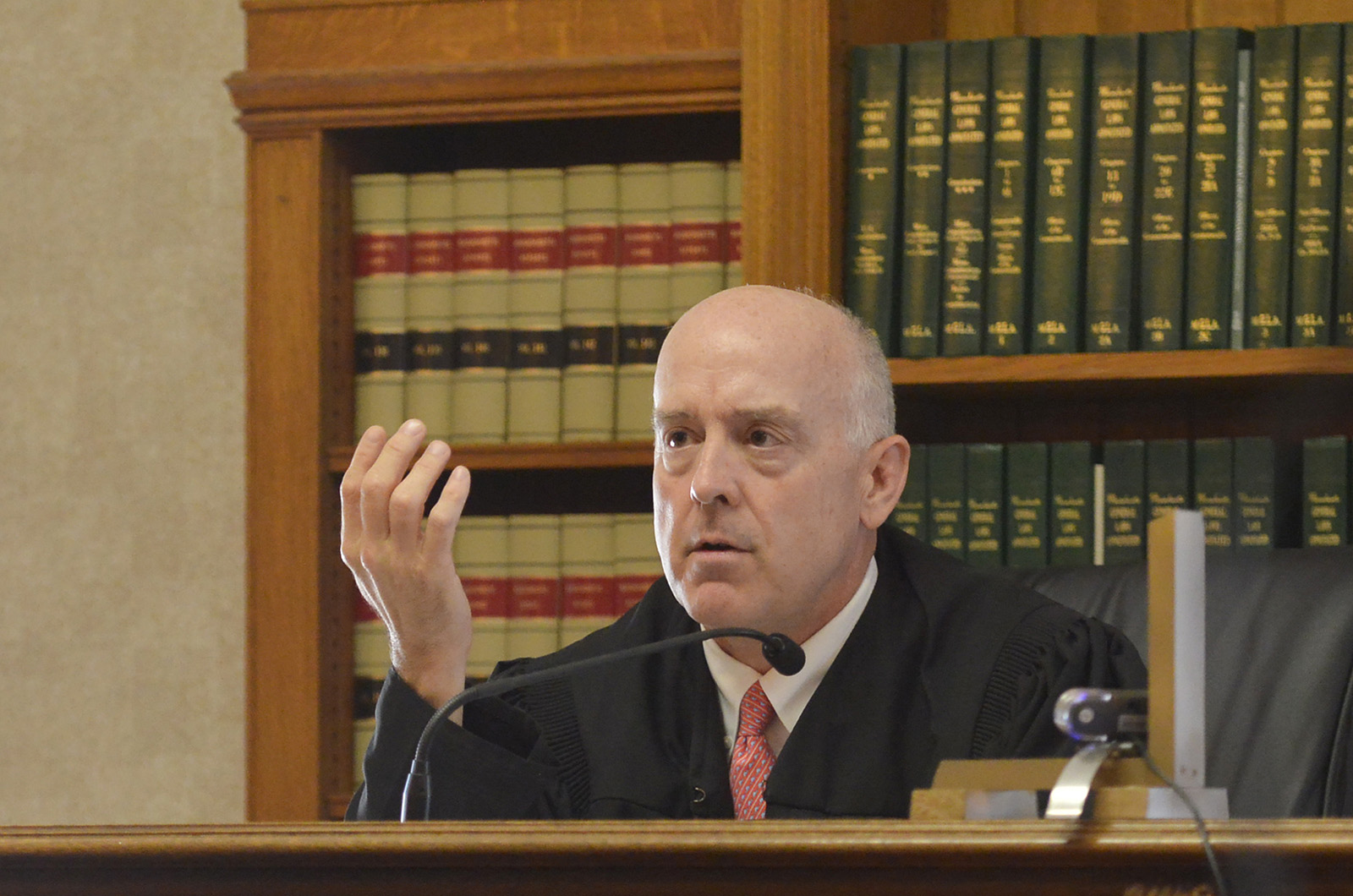A Cape Cod judge is considering the Dukes County sheriff’s request this week to toss out a lawsuit filed against him by the Cape and Islands District Attorney’s Office.
In June, district attorney Robert Galibois sued sheriff Robert Ogden, demanding the sheriff hand over 20 years of employee records that the district attorney could deem necessary to go to trial with at some point.
On Tuesday, Mr. Ogden’s lawyer Jack Collins argued the district attorney’s request is at odds with years of precedent and puts an undue burden on the sheriff’s department.

The dispute has been a rare fight between the prosecutor’s office and the sheriff, the latter of whom oversees the Island’s jail and lockup facility. Mr. Galibois is seeking records on current and former employees as part of what’s commonly referred to as “Brady” material.
Named after the landmark Brady v Maryland U.S. Supreme Court case, prosecutors are required to turn over any evidence, including records on officers, to defense attorneys. Brady materials can be critical to defense lawyers, who may call an officer’s past conduct into question in relation to an arrest.
Sheriff Ogden’s office said in the past, the district attorney would request records for officers who were involved in particular cases, whether they were a booking officer or administered a breathlyzer test. The new policy for Brady materials created by Mr. Galibois’ office aims to gather materials in bulk across its jurisdiction, which includes all of the Vineyard, Cape Cod and Nantucket, asking for records for employees going back 20 years.
Both the Dukes County Sheriff’s Office and Barnstable County Sheriff’s Office have pushed back, saying they will gladly hand over materials needed for individual cases, rather than give a mountain of records for the district attorney to essentially create its own database.
Attorneys for the sheriffs made their case to Barnstable County Superior Court judge Michael Callan Tuesday, asking him to dismiss the lawsuits.
Dukes County sheriff attorney Jack Collins said he picked the minds of district attorneys, trial lawyers and police departments across the country on the issue, and found that none do it the way Mr. Galibois wants to proceed.
“I looked at everybody,” he said. “Something they have common is they are all case specific.”
Judge Callan seemed to struggle to understand why the district attorney’s office was going about collecting records in this manner, and openly wondered why the district attorney couldn’t ask for records when a case involved the sheriff’s office.
“Judges apply law, they don’t make policy,” he said. “It just looks to me like these are two different policy approaches to going about the same goal. How do I or some other judge say which policy is better?”
Rose-Ellen El Khoury, an attorney representing the district attorney, said this new policy for collecting Brady information, which can include disciplinary records and internal investigations, can ensure that defense attorneys have all of the exculpatory evidence necessary to comply with an order from the Massachusetts Supreme Judicial Court.
“We are attempting to make sure that when someone gets up, be they someone who is getting a first-time offender in district court, or if there’s sommone who is arguing a post-conviction case in front of the SJC, that they are able to represent that at all stages and at all times, we have provided the defense with the information they need,” Ms. El Khoury said. “Because, at the end of the day, it’s an ADA’s bar card on the line.”
Judge Callan took the matter under advisement and said it might take a while to make a decision.








Comments
Comment policy »